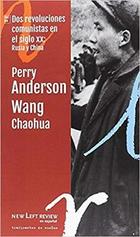
The comparison of the two communist revolutions of the long twentieth century is thus a fascinating intellectual exercise and an object of theoretical analysis of great political importance and relevance, because in these historical-structural experiences, the enormous dilemmas that historical capitalism had posed to human societies at the dawn of our time were subject to a gigantic collective experience, which gave greater thickness and complexity to the possible paths of political constitution of the secularly dispossessed great masses.
At the beginning of the year 2010, Perry Anderson published by way of draft, an article in which he compared the Russian and Chinese Revolutions. Five years later, Wang Chaohua provides a critical verdict on the results and consequences of Mao's utopianism and Deng's pragmatism as well as the bitter legacy left by the crushing of aspirations...read more






